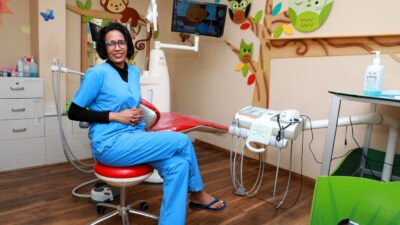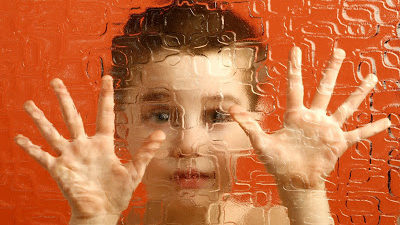The world has witnessed many pandemics and emergencies. But our generation has never seen crisis of this magnitude ever. Severe acute respiratory syndrome coronavirus 2 (SARS -CoV 2) known to be very contagious. Though children do not seem to be at high risk of contracting the virus, they can still be carriers of it, mainly because they can be asymptomatic or have the infection with mild, nonspecific symptoms. Studies suggest that children have specific mechanisms that regulate the interaction between the immune system and respiratory machin resulting in milder disease. Therefore, it is crucial for them to follow the social distancing protocols, especially with elders and people with histories of medical conditions.
A cleaner and healthier mouth may be less prone to viral infection. Though SARS CoV 2 is a no virus and a lot of research is still underway, a report by Michael Levis in ITV, suggests the presence of Corona Virus in saliva, in par with the levels found in nasopharynx. Even in the pa
numerous researches have indicated that good oral hygiene can slow down the progression of respiratory problems like pneumonia.
Pediatric oral health has always been important, but now is the time to emphasize appropriate oral health management and disease prevention. As we move towards relaxation in lockdown rules, it is important to train children about hand hygiene. It is equally important to help them exercise good oral and diet habits to avoid dental emergencies. It is crucial to reach out to a pediatric dentist via video consultation or in-person to make sure your child’s dental health is always being taken care of.
Here are a few tips to ensure proper oral hygiene during and after COVID19:
TeleBites to the rescue:
Taking your children to a clinic in times of a pandemic can put them at risk of contracting the virus. In case of an oral health issue, you could get a consultation through Telebites – an exclusive video dentistry service to address children’s dental health concerns virtually. This not only red the distance between a patient and the doctor but also puts children at ease as they are in an environment familiar to them.
Brushing and flossing is the key:
Brushing twice a day and flossing daily is crucial in maintaining good oral health. A toothbrush with soft bristles, either manual or electric, should be used; and children must be taught to wash their hands for at least 20 seconds before and after the dental care routine.
Flossing helps remove bacteria and plaque from areas that are not easily accessible to atoothbrush. Using tongue cleaners to scrape away plaque reduces bacteria that can create bad breath and resulting oral issues.
Healthy breakfast for healthy smiles:
It is no secret that the first meal of the day is the most important one; Not only does it make yo body healthier, but studies show that good breakfast choices can lead to better dental health to Certain bacteria that is left behind on your teeth post consuming a meal can produce acids that may lead to tooth decay. So, it is important to include whole grains in your kid’s breakfast as they are less likely to promote tooth decay.
Limit your sugary drinks and frequency of snacking:
There no doubt that kids love sugary drinks and soda – but parents need to watch the amount of soda intake and limit it to a maximum extent possible. The carbonated beverages and acidic juice can wear down tooth enamel and harm the child’s primary teeth. Also, frequent snacking can l to cavities – so fix a snack time and stick to it! Follow what you preach!
Keep the kids hydrated:
Keeping your child hydrated between meals is crucial in maintaining their oral health. Children’s bodies are prone to losing fluids when they are fighting off an infection – and this may increase the risk of dehydration and having a dry mouth.
Change the toothbrushes regularly:
Toothbrushes can become breeding houses for many kinds of bacteria. It is recommended to change them at least every three months once or even earlier if the bristles are frayed. Children more susceptible to infections than us adults, and therefore being extra vigilant, especially in times like this, is necessary.
This article was first published in Momspresso




